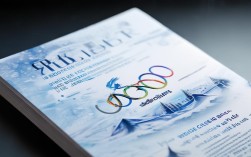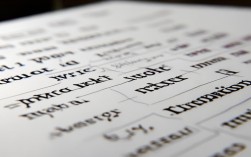在英语学习中,掌握一些表达"才能"的词汇不仅能丰富语言表达,还能让交流更加精准,无论是描述天赋、技能还是专业能力,英语中有许多词汇可以准确传达不同层次的才能,以下是一些常见且实用的表达方式,帮助你在不同场合更自然地使用这些词汇。

Talent
"Talent"是最常见的表达"才能"的词汇之一,通常指与生俱来的天赋或突出的能力,这个词强调自然禀赋,而非后天习得的技能。
例句:
- She has a great talent for music.
- His artistic talent was evident from a young age.
"Talent"也可以指有才能的人,
- The company is always looking for new talents.
Skill
"Skill"指通过学习和练习获得的能力,强调后天的培养,与"talent"不同,"skill"更侧重于技术或专业能力。
例句:
- He has excellent communication skills.
- Programming is a valuable skill in today's job market.
"Skill"常与具体领域搭配,如:
- leadership skills(领导能力)
- problem-solving skills(解决问题的能力)
Ability
"Ability"是一个广泛使用的词,指完成某件事的能力,可以是天生的,也可以是后天培养的。
例句:
- She has the ability to learn languages quickly.
- His ability to stay calm under pressure is impressive.
"Ability"常与动词"have"或"demonstrate"搭配使用。
Aptitude
"Aptitude"指学习或掌握某事物的天然倾向或潜力,通常用于学术或职业领域。
例句:
- He has an aptitude for mathematics.
- The test measures your aptitude for logical reasoning.
这个词常用于教育或职业评估中,

- career aptitude test(职业倾向测试)
Gift
"Gift"强调非凡的、近乎与生俱来的才能,常带有一种"天赋异禀"的意味。
例句:
- She has a gift for storytelling.
- His photographic memory is a rare gift.
"Gift"有时也带有一种"被赐予"的意味,因此比"talent"更具赞美色彩。
Expertise
"Expertise"指在某一领域的专业知识和技能,通常是通过长期经验积累而来。
例句:
- His expertise in cybersecurity is highly sought after.
- The consultant provided valuable expertise on market trends.
这个词常用于专业或商业语境,强调权威性和深度。
Proficiency
"Proficiency"指熟练掌握某种技能或语言的能力,通常需要通过测试或评估来证明。
例句:
- She has achieved fluency and proficiency in three languages.
- The job requires proficiency in Excel.
"Proficiency"常与语言或技术技能相关,
- English proficiency test(英语能力测试)
Competence
"Competence"指具备足够的能力来完成某项任务或工作,强调实用性和达标水平。
例句:
- The training program ensures all employees reach a basic level of competence.
- His competence in project management is unquestionable.
这个词常用于职场或专业评估,与"incompetence"(无能)相对。

Flair
"Flair"指在某个领域表现出的独特才能或风格,常带有创造性和个人特色的意味。
例句:
- She has a real flair for interior design.
- His writing shows a distinctive flair.
"Flair"通常用于艺术、设计或创意领域,强调个性和独特性。
Knack
"Knack"指轻松做好某事的窍门或特殊能力,常带有一种"得心应手"的意味。
例句:
- He has a knack for fixing things.
- She has a knack for making people feel comfortable.
这个词通常用于非正式场合,描述看似简单但实际需要技巧的能力。
Mastery
"Mastery"指对某种技能或知识的完全掌握,达到精通的程度。
例句:
- After years of practice, he achieved mastery of the violin.
- The course aims to help students gain mastery over the subject.
"Mastery"强调长期努力和最终的高水平掌握。
Dexterity
"Dexterity"特指手部灵巧或身体协调的能力,常用于描述需要精细动作的技能。
例句:
- Surgeons need exceptional manual dexterity.
- Her finger dexterity makes her an excellent pianist.
这个词特别适用于描述需要精细动作控制的领域,如音乐、手术或手工艺。

Prowess
"Prowess"指非凡的技能或能力,尤其用于描述在挑战性领域的卓越表现。
例句:
- He is renowned for his athletic prowess.
- Her intellectual prowess earned her a scholarship.
"Prowess"带有一种英雄式的赞美意味,常用于体育、学术或军事领域。
Savvy
"Savvy"指实际而精明的能力,特别适用于商业或社交场合。
例句:
- She has great business savvy.
- His political savvy helped him navigate complex negotiations.
这个词强调实用智慧和街头智慧,而不仅是理论知识。
Virtuosity
"Virtuosity"指在艺术表演领域展现出的极高技巧和精湛技艺。
例句:
- The pianist's virtuosity left the audience in awe.
- His virtuosity with the brush is unmatched.
这个词几乎专用于描述音乐、舞蹈、绘画等表演艺术的卓越才能。
如何选择正确的词汇
在具体使用时,可以根据以下因素选择合适的词汇:
- 天赋与后天:如果需要强调天生才能,选择"talent"或"gift";如果是后天习得的能力,则用"skill"或"expertise"。
- 专业程度:日常能力用"ability",专业水平用"proficiency"或"mastery"。
- 语境正式度:正式场合用"competence"或"expertise",非正式场合可用"knack"或"flair"。
- 领域特性:艺术类多用"virtuosity"或"flair",技术类多用"skill"或"proficiency"。
英语中表达"才能"的词汇如此丰富,恰当地使用它们可以让你的表达更加准确生动,无论是描述自己还是他人的能力,选择合适的词汇都能让语言更具表现力,掌握这些词汇的细微差别,你的英语表达将更加地道和精准。






